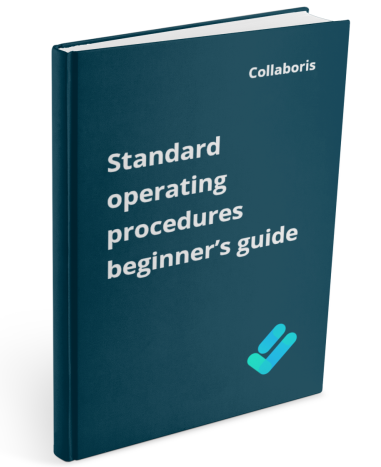Policy Approval Workflow Automated policy approval workflows offer several benefits that can significantly enhance ...
Why your SOP's may be ignored

Standard Operating Procedures (SOPs) are essential for any organization looking to maintain consistency, reduce errors, and improve efficiency. Despite their importance, however, SOPs may not always be followed. This can be due to a variety of factors, such as lack of clarity, resistance to change, or simply forgetfulness. In this blog post, we'll explore some of the reasons why SOPs may not be followed and how organizations can address these issues.
Lack of Clarity
One of the main reasons why SOPs may not be followed is due to a lack of clarity. If the procedures are not clearly written or if employees do not understand them, they are less likely to follow them. This can lead to confusion and errors, which can result in decreased efficiency and increased costs.
To address this issue, organizations should ensure that their SOPs are clear, concise, and easy to understand. SOPs should be written in plain language and provide step-by-step instructions for completing tasks. They should also include visual aids, such as diagrams or flowcharts, to help employees understand the process.
Resistance to Change
If employees are used to doing things a certain way, they may be hesitant to adopt new procedures. This can be particularly true for long-time employees who have been doing things a certain way for years.
To avoid this problem, organizations should involve employees in the development of SOPs. By soliciting their feedback and input, employees will be more likely to buy into the new procedures. Organizations should also provide training and support to help employees adjust to the new procedures.
Are your policies read on time and by the right people?
DocRead makes compliance simple
Forgetfulness
Employees may forget to follow SOPs, particularly if they are not used to doing so. This can be due to distractions, stress, or simply the fact that they are used to doing things a certain way.
Organizations should provide reminders to employees to follow SOPs. This can be done through training sessions, email reminders, or by posting reminders in the workplace. Organizations should also monitor compliance with SOPs and provide feedback to employees who are not following them.
Lack of Accountability
If employees do not feel that they will be held accountable for following SOPs, they may be less likely to do so. This can be due to a lack of consequences for non-compliance or a lack of recognition for following SOPs.
Organizations should establish clear consequences for non-compliance with SOPs. These consequences should be communicated to all employees and enforced consistently. Organizations should also recognize and reward employees who consistently follow SOPs.
Outdated SOPs
If SOPs are outdated, employees may not follow them. This can be due to changes in technology, regulations, or best practices.
Organizations should review their SOPs regularly and update them as needed to avoid this problem. This can be done through a formal review process that involves input from employees, stakeholders, and subject matter experts.
Get your free Standard Operating Procedures guide
Creating Standard Operating Procedures for your organisation doesn't have to be complicated. This guide will introduce you to the whole lifecycle from creation to training and distribution.
Conclusion
In conclusion, SOPs are essential for maintaining consistency, reducing errors, and improving efficiency. However, they may not always be followed due to lack of clarity, resistance to change, forgetfulness, lack of accountability, or outdated procedures. Organizations can address these issues by ensuring that their SOPs are clear, involving employees in the development process, providing reminders and training, establishing consequences for non-compliance, and updating SOPs regularly. By addressing these issues, organizations can improve compliance with SOPs and achieve their goals.
You may also like:
Creating policy review reminders in Office 365 You might want to set up a ...
Podcast: Implementing effective healthcare procedures Implementing effective healthcare procedures is an ongoing process. It ...
Podcast: 10 Powerful Strategies for Employee ComplianceOrganizations face challenges in ensuring employee compliance with ...
AI Warns About Itself: How I Asked AI to Create a Podcast on the ...
Benefits of writing SOP's In any organization, standard operating procedures (SOPs) are critical to ...

